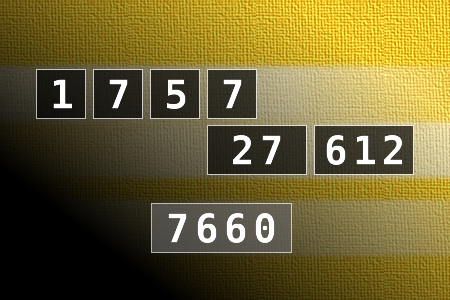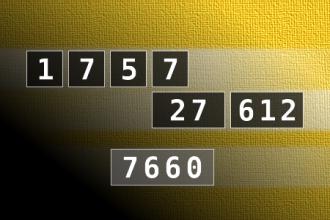Calculate the number 7660
NUMBERMANIA: Calculate the number 7660 using numbers [1, 7, 5, 7, 27, 612] and basic arithmetic operations (+, -, *, /). Each of the numbers can be used only once.Correct answers: 19
The first user who solved this task is Manguexa Wagle.
#brainteasers #math #numbermania

